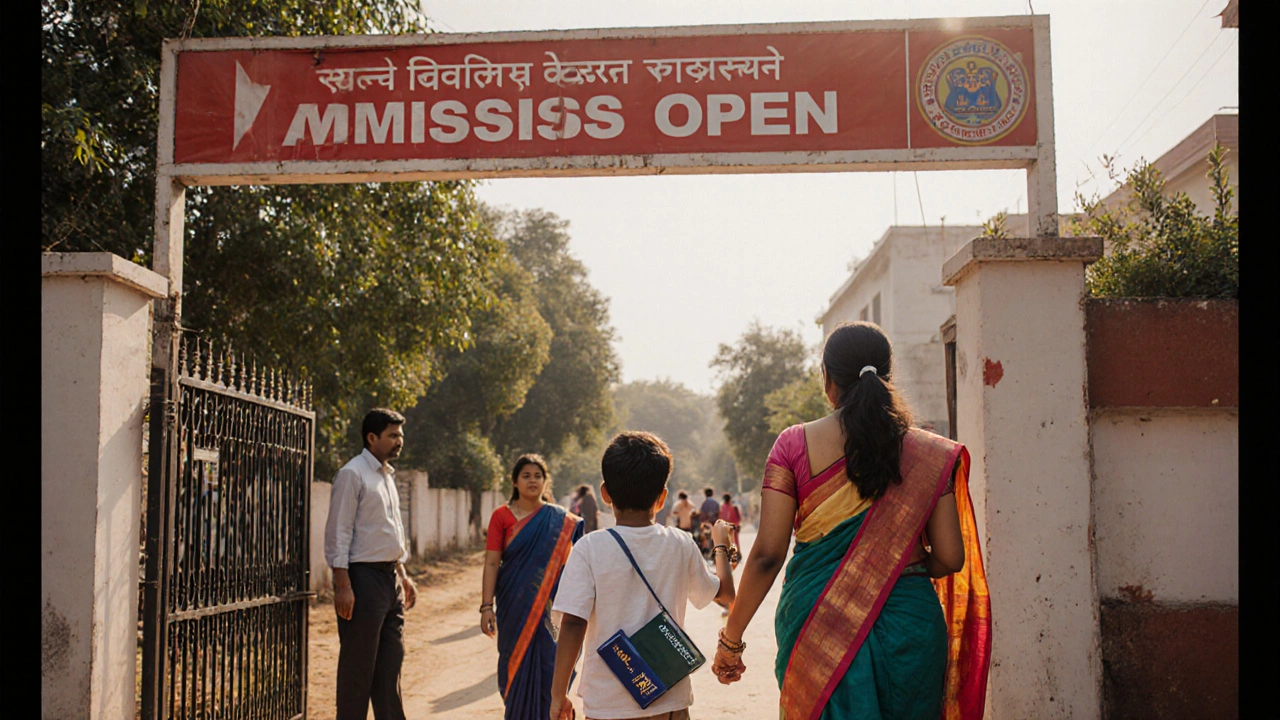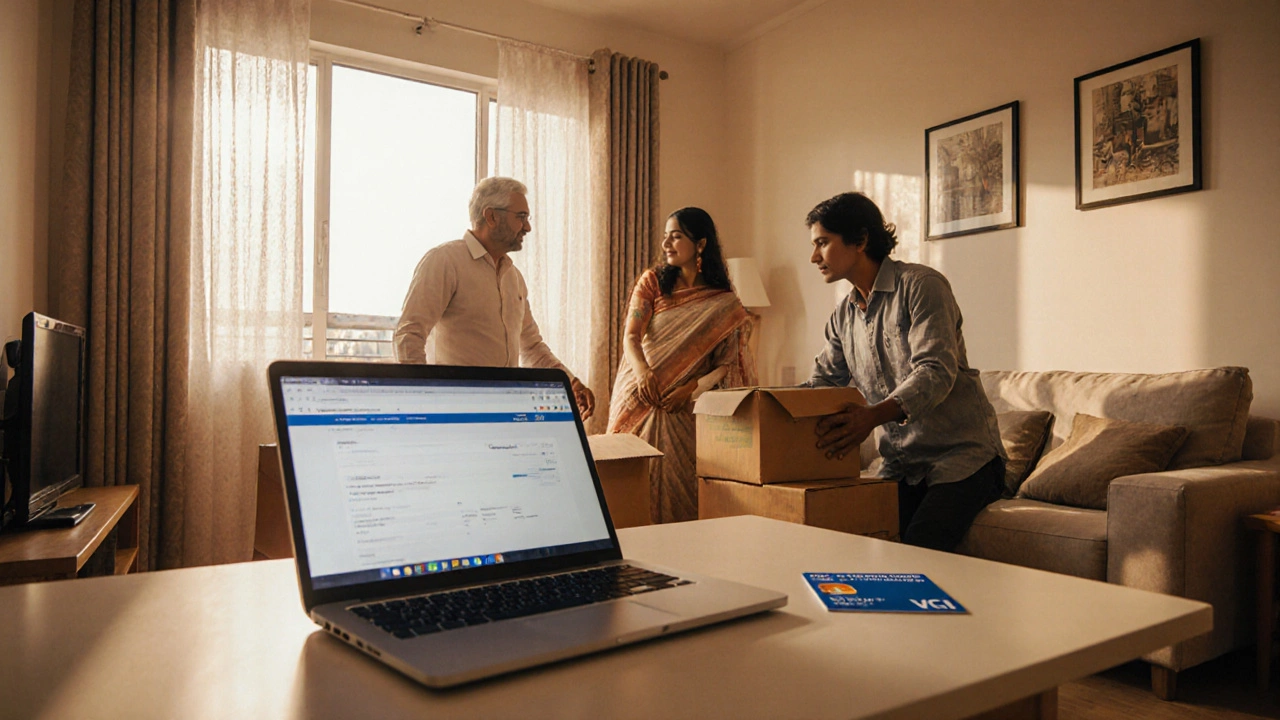OCI Property Ownership Calculator
Can You Buy This Property?
Select the property type to check if it's allowed for OCI holders in India.
You can purchase this property!
OCI holders can buy this type of property without restrictions. You may need to register the property and pay applicable taxes.
You cannot purchase this property!
Indian law restricts OCI holders from buying agricultural land, plantation property, or farmhouses. You can explore alternative property options or consider becoming a citizen.
Important: OCI holders can buy residential and commercial properties without restrictions. However, they cannot purchase agricultural land, plantation properties, or farmhouses. This rule is strictly enforced by the Indian government to protect agricultural land ownership.
If you hold an OCI card, you might be wondering: Can OCI holder live permanently in India? The short answer is yes - but with important limits. Unlike Indian citizens, OCI cardholders don’t have full rights. They can live, work, and study in India indefinitely without a visa, but they can’t vote, hold public office, or buy agricultural land. This isn’t citizenship. It’s a long-term residency permit with deep benefits - and a few hard boundaries.
What Exactly Is an OCI Card?
The Overseas Citizen of India (OCI) program started in 2005. It was created for people of Indian origin who became citizens of other countries. If your parents or grandparents were Indian citizens, or if you were married to an Indian citizen, you may qualify. Over 3 million people now hold OCI cards, mostly in the U.S., Canada, the UK, and Australia.
OCI isn’t dual citizenship. India doesn’t allow dual nationality. But OCI gives you nearly all the rights of a resident - except those tied to sovereignty. You get a lifetime visa to enter India. No more renewing tourist visas every six months. You can stay as long as you want. You can work in the private sector. You can open bank accounts. You can buy residential or commercial property. You can even start a business.
Living in India Permanently: What’s Allowed?
OCI holders can live in India permanently without needing to apply for a residence permit. There’s no time limit. You don’t have to leave after 180 days like tourists. You can settle down, buy a house, send your kids to school, and retire here. Many OCI cardholders do exactly that - especially retirees from the U.S. and Europe who want to be close to family or enjoy lower living costs.
Here’s what you can do as an OCI holder living in India:
- Reside anywhere in India without registration
- Work in private companies or as a freelancer
- Study at Indian universities without a student visa
- Open and operate bank accounts (NRO, NRE, and regular savings)
- Buy residential or commercial property (but not farmland)
- Apply for a PAN card and file income tax returns
- Get a driver’s license and register a vehicle
That’s a lot. But here’s what you can’t do:
- Vote in elections
- Run for public office (MP, MLA, local council)
- Join the Indian armed forces or police
- Own agricultural land, plantation property, or farmhouses
- Hold certain government jobs (even in public sector banks or PSUs)
Can OCI Holders Get Indian Citizenship?
Yes - but it’s not automatic. After holding an OCI card for five years and living in India for one full year during that period, you can apply for Indian citizenship under Section 5 of the Citizenship Act, 1955. You’ll need to give up your foreign passport. India doesn’t allow dual citizenship, so you must renounce your current nationality.
This is a big step. Many OCI holders choose not to take it. Why? Because giving up a U.S., Canadian, or Australian passport means losing benefits like consular protection, visa-free travel to over 180 countries, and sometimes even tax advantages. For most, OCI offers enough freedom without the trade-off.
Taxes and Financial Rules for OCI Holders
If you live in India permanently as an OCI holder, your tax status changes. The Indian tax system doesn’t care about your passport - it cares about where you live.
Here’s how it works:
- If you stay in India for 182 days or more in a financial year, you’re a resident for tax purposes.
- As a resident, you pay tax on your global income - even money earned outside India.
- If you stay less than 182 days, you’re a non-resident and only pay tax on India-sourced income.
Many OCI holders who move back to India file taxes as residents. They report income from rental properties, pensions, investments, or freelance work - wherever it comes from. The Indian Income Tax Department treats them the same as any other resident. You’ll need a PAN card and must file returns online.
Banking is straightforward. You can keep your NRE (Non-Resident External) account if you’re still earning income abroad. But if you’re living in India full-time, you’ll likely switch to a regular savings account. Interest on NRE accounts is tax-free - but only if you’re a non-resident. Once you become a resident, that benefit ends.

Property Ownership: What You Can and Can’t Buy
OCI holders can buy apartments, houses, offices, and shops. No permission needed. You can even get home loans from Indian banks - many offer the same rates to OCI holders as to Indian citizens. HDFC, ICICI, and SBI all have clear policies for OCI buyers.
But you cannot buy:
- Farm land
- Plantation property
- Farmhouses
This rule is strict. Even if you’re born in a village in Punjab or Tamil Nadu, you can’t inherit or purchase farmland as an OCI holder. The government keeps agricultural land under Indian citizen control to protect food security and rural livelihoods.
Some people try to get around this by buying land in a spouse’s name - but that’s risky. If the spouse isn’t an Indian citizen, the transaction could be blocked. If they are, it’s legal - but only if the land is truly owned by the Indian citizen, not just held in their name for you.
Healthcare, Education, and Daily Life
OCI holders can access public healthcare in India, though most choose private hospitals for better service. You can enroll in health insurance plans like those offered by Star Health, Max Bupa, or HDFC Ergo. Premiums are the same as for Indian citizens.
For education, your children can join any school or college without quota restrictions. They can even sit for competitive exams like JEE and NEET - and compete for seats reserved for Indian citizens. Many OCI families send their kids to Indian schools to maintain cultural ties.
Getting a mobile SIM card? Easy. You need your OCI card and passport. Getting a driver’s license? Same process as for Indians. Renting an apartment? Landlords treat you like any other tenant. You don’t need special approvals.
What Happens If You Leave India?
OCI status doesn’t expire. Even if you move back to Canada or Australia, your card stays valid for life. You can return anytime. No need to reapply. No visa fees. Just show your OCI card and foreign passport at immigration.
But if you’re away for more than five years, you’ll need to revalidate your OCI card. This is a simple online process. You upload a photo and pay a small fee. It’s not a renewal - it’s just a check-in. The government wants to know you’re still alive and connected.

Is OCI the Same as Citizenship?
No. And that’s the key point. OCI is the closest thing to permanent residency without being citizenship. It’s designed for people who want deep ties to India but don’t want to give up their current nationality.
Think of it like a green card in the U.S. You can live, work, and stay forever. But you can’t vote. You can’t run for president. You’re not a citizen.
For many, that’s perfect. For others, the lack of political rights is a dealbreaker. If you plan to be in India for decades - raising kids, building a business, retiring - OCI gives you everything you need. Just don’t expect the full rights of an Indian citizen.
Real-Life Examples
Sarah, 62, moved from Toronto to Bangalore in 2020. Her father was born in Chennai. She holds an OCI card. She bought a 3-bedroom apartment, started a small online tutoring business, and volunteers at a local school. She pays taxes on her global pension. She doesn’t vote - but she doesn’t miss it.
Sameer, 38, moved from London to Hyderabad with his wife and two kids. He works remotely for a UK-based tech firm. His kids go to a private school. He drives a Maruti Swift. He owns his home. He’s never applied for Indian citizenship. He keeps his British passport for travel.
These aren’t rare cases. Thousands do the same thing every year.
Final Thoughts
Can an OCI holder live permanently in India? Absolutely. The system is built for it. You can settle in, build a life, and never have to leave. The rules are clear, the process is smooth, and the benefits are real.
But remember: OCI isn’t citizenship. It’s a bridge - not a destination. If you want full rights, you’ll need to become a citizen. If you want freedom without the paperwork, OCI is the best option available.
If you’re thinking of moving back, start by checking your eligibility. Gather your parents’ or grandparents’ Indian documents. Apply for OCI online through the Indian government portal. Once you get the card, you’re free to live - permanently - in the country your family came from.
Can OCI holders buy property in India?
Yes, OCI holders can buy residential and commercial property in India without any special permission. They cannot buy agricultural land, plantation property, or farmhouses.
Do OCI holders need a visa to enter India?
No. OCI holders get a lifetime visa. They only need to carry their OCI card and a valid foreign passport to enter India.
Can OCI holders work in India?
Yes. OCI holders can work in the private sector, start businesses, and work as freelancers. They cannot work in government jobs or the armed forces.
How long can an OCI holder stay in India?
Indefinitely. There is no time limit. OCI holders can live in India permanently without needing to renew their status.
Can OCI holders apply for Indian citizenship?
Yes, after holding an OCI card for five years and residing in India for one full year during that period, they can apply for Indian citizenship under Section 5 of the Citizenship Act, 1955. They must give up their foreign passport.
Are OCI holders taxed like Indian citizens?
If they live in India for 182 days or more in a financial year, they are considered tax residents and must pay tax on their global income, just like Indian citizens.
Can OCI holders get a driver’s license in India?
Yes. OCI holders can apply for an Indian driver’s license using their OCI card and foreign passport, following the same process as Indian citizens.
Does OCI status expire?
No, OCI status is for life. But if you’re outside India for more than five years, you must revalidate your OCI card online with a new photo and small fee.
Can OCI holders open a bank account in India?
Yes. OCI holders can open NRO, NRE, and regular savings accounts. They can also get loans, credit cards, and invest in mutual funds.
What happens if an OCI holder becomes an Indian citizen?
Their OCI card is canceled. They must surrender their foreign passport and receive an Indian passport. They then gain full rights, including voting and holding public office.
